Feeling Your Fullness: Principle 5
- June 17, 2020
- Last Updated: December 2, 2023
- 0 Comments
- Intuitive Eating
“Listen for the body signals that tell you that you are no longer hungry. Observe the signs that show that you’re comfortably full. Pause in the middle of eating and ask yourself how the food tastes, and what your current hunger level is.” – Evelyn Tribole and Elyse Resch.
While this intuitive eating series of the ten intuitive eating principles is geared towards athletes with some specific scenarios, certainly everyone can benefit as we break each principle down.
Last time, we talked about principle 4 and challenging the food police and how to settle the “good” and “bad” labels of food that our brains connotate. Today, we’re talking about fullness, which is a little more subjective and may be quite different for all of us.
But nonetheless, it’s an important principle to break down with the diet culture we live in that tells us fullness is “bad.”
What Does Fullness Feel like?
Many dieters either grew up with a “clean your plate” mentality, or feel like it’s something they have to do now. This is because they are coming from a deprivation mindset, constantly thinking there is not enough food.
The deprivation mindset, as we’ve previously discussed, will seek out food due to our biological response to eat.
Have you ever found yourself eating an entire carton or pack of something fat-free, just because it’s labeled “fat free?”
Maybe you started feeling full bites ago, but the defiance factor is playing in.
Or, the thought that since it’s “fat free,” it is “guilt free” and you can eat all you want and more.

Or, maybe you’re someone who always clears your plate out of habit, or not wanting to waste food.
Regardless of how hungry or full you are, it may feel common to have to finish everything on your plate. Disregarding your internal hunger, fullness and satiety signals.
Maybe you’re disregarding hunger signals because you have a fear of hunger, or maybe there are other reasons.
Maybe you have some unmet emotional hunger needs.
A SPORTS DIETITIAN IN YOUR POCKET?!
This is the sports nutrition resource you’ve been missing in your training. It can help make sure you’re eating enough for performance and recovery. – grab it now!
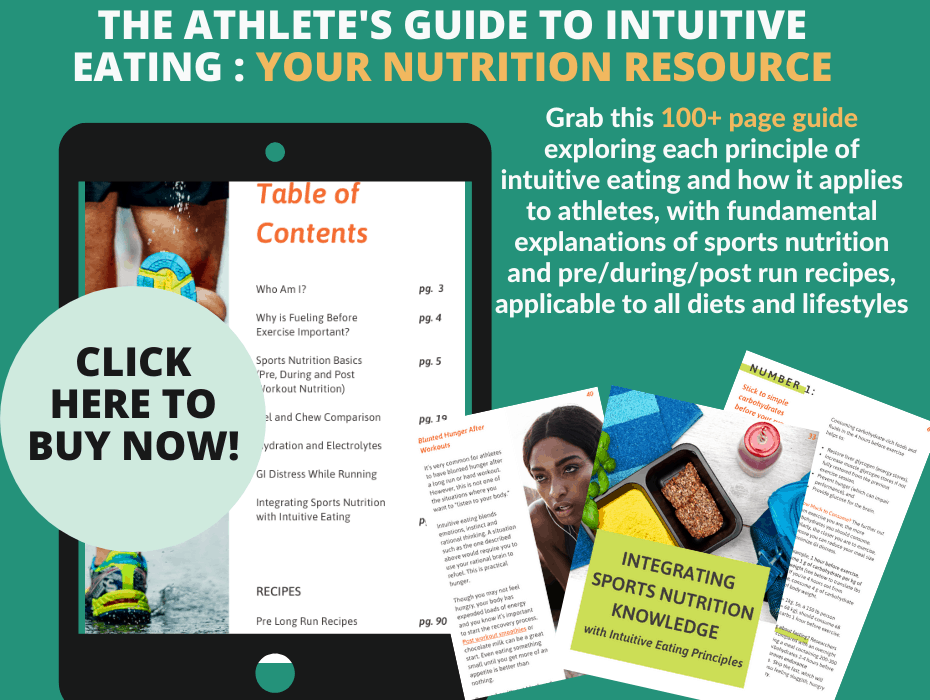
How Do You Respect Fullness?
The only way you’ll be able to consistently feel comfortable stopping when you’ve had enough to eat biologically is when you can give yourself unconditional permission.
Unconditional permission to eat, aka make peace with food. We talk about this often in my ebook and workbook.

Otherwise, there will be thoughts that you may not be able to have this food again (in the near future). In that case, you’re more likely to uncomfortably eat beyond fullness just to “stuff it in.” It’s that last supper mentality.
It is much easier to stop eating at a comfortable point when you know you can eat that food again later, or any time you want.
If you’re someone who habitually cleans your plate and you find yourself constantly eating beyond hunger, it can help to check in with yourself before the meal and during the meal.
If hunger scares you, challenge your fear of hunger.
Ask yourself:
- How is food tasting right now?
- Why do I feel the urge to finish this?
- Can I save the rest for leftovers tomorrow?
- Is this still enjoyable?
- Am I stressed about something else and not able to focus on the food?
- If you were to stop eating now, would you be missing out on anything? Would you still be thinking about food?
Oftentimes, the answers to these questions can help. If you’re having trouble leaving food on your plate, it can be helpful to break down this thought pattern through journaling and therapy.
Or, even if you have childhood connotations with what hunger and fullness symbolizes (i.e., maybe food was inaccessible as a child).

The Intuitive Eating Hunger Scale
I’ll direct you to this post that talks about the intuitive eating hunger scale and this free download for the hunger scale for athletes (click below).
A common consequence of dieting is not understanding what a comfortable fullness level feels like. We are either used to feeling uncomfortably full or settling on just eating “enough,” which often translates to feeling hungry soon after.
Maybe people are used to feeling full all the time and thinking that is the norm.
We may all experience comfortable fullness differently. I like to think of it as a feeling where you are no longer thinking about food.
You’re not hungry and you may be slightly full but not in pain or discomfort.
You feel satisfied about the food you just ate and are able to devote energy (mental and physical) to other things.

Eating Without Distractions Can Help Bring Awareness to Fullness
Still having trouble feeling fullness or eating past a comfortable level?
Consider this. Do you constantly eat on the go, in front of the tv, or while multi tasking? While in some instances, this is unavoidable, it is not ideal to do this consistently.
Firstly, you’re not in a rest-and-digest mode, nor utilizing your parasympathetic nervous system, when you’re in a stressed and frantic state.
Maybe your cortisol is high from the other task and thoughts you’re thinking about. Therefore, your body is not in a calm and relaxed state to digest food.
Perhaps, the first step for you, is working on eating one meal in a non-distracted state each day. Try to focus on the food, the flavors, and how you feel halfway in to your meal vs. at the beginning.
Are you tasting the food more? Are you able to recognize fullness and/or satisfaction easier?
Does the food even still taste good several bites in?

How Long Does It Take To Feel Full?
It may vary for all of us! But, it can be influenced by how much food we have in our stomach from previous meals or snacks, the last time we ate, and what combination of foods we’re eating.
For example, it may take longer to feel full with a large bowl of salad rather than a 4oz cut of steak.
Perhaps you find yourself feeling full and satiated after eating 2/3 of the meal rather than all of it when you are conscious about it. Maybe that leaves you with more energy for the rest of the day, rather than feeling overly full and sluggish.
Tuning in to these signs from your body can be powerful.
Sometimes, having a conscious sign to indicate you’re done eating can be enough to mentally turn that switch for you. Maybe it’s nudging your plate away from you, or walking to the kitchen to refill your water, or taking out a tupperware container for leftovers.
Fullness is Not Bad
Another point I want to hit home on is that feeling physical fullness is not a bad thing.
Many people associate fullness with overeating and eating “too much.” We think fullness means we’ve done something wrong. Another common thought is that getting full easily is a symptom of pregnancy or a chronic disease. When in actuality, it is completely normal!
Associating fullness with overeating is a reinforced message from diet culture, and also a fatphobic thought.
When we connect fullness to gaining weight and getting fat, where is that fear coming from?

Feeling full is actually a “normal” part of eating and signifies a “normal” relationship with food. If we don’t eat to the point of fullness because we’re scared of it, we’ll constantly feel hungry and be thinking about food.
Fullness allows us to get in touch with the physical sensations of our body and sit with moderate discomfort sometimes, whether that be a slight pressure in your abdomen or the need to put on a looser pair of pants. Neither is wrong.
Why Do I Never Feel Full?
On the flip side, you may be someone who never experiences that physical fullness. Perhaps, because you’re scared of what it feels like. I liken this question to the question of, “Why am I always hungry?”
If you’re someone who doesn’t feel fullness, or maybe you’re scared of the physical feeling of fullness, it’s often a result of diets. Dieting tells you that you need to adjust to eating less, and feeling hungry is “normal” and “good.”
But, if you’re never feeling physically full or mentally satisfied, and you’re constantly fighting off hunger pangs, that’s not a healthy mental state. It’s not a healthy mental state because you will continue to think about and hyperfocus on food choices and whether you need to eat more.
If you find yourself experiencing inconsistent fullness levels and thoughts, consider these ideas:
- What are you eating at your meals and snacks? A balance of the macronutrients?
- Are you eating a lot of “low fat,” “diet,” “low sugar” or “air foods?” These may fill up your stomach initially but offer little staying power.
- When are you starting to eat? Are you starving, neutral or starting to feel hungry? This can affect how quickly fullness hits you and to what extent.
- How much are you actually eating? This can be difficult to gauge on your own whether it’s enough, especially if you have a history of disordered eating. But, it’s great to work with a dietitian on!

Fullness Related to Athletic Events:
- What is a comfortable fullness before starting to exercise? You may want to account for some time to digest the food so you don’t feel bloated. Or, maybe knowing how fullness affects you means you eat something smaller beforehand and something larger after.
- Just as hunger may be blunted after a workout, fullness may be affected as well. Give yourself some time to see if you feel full after eating (~30 minutes). If at that point you want or need more food, give yourself permission to eat more in the recovery period.
Want more resources on fullness and understanding it?
Grab my Ebook which explains more about fullness, giving yourself permission to feel full, and tips for recognizing hunger and fullness.
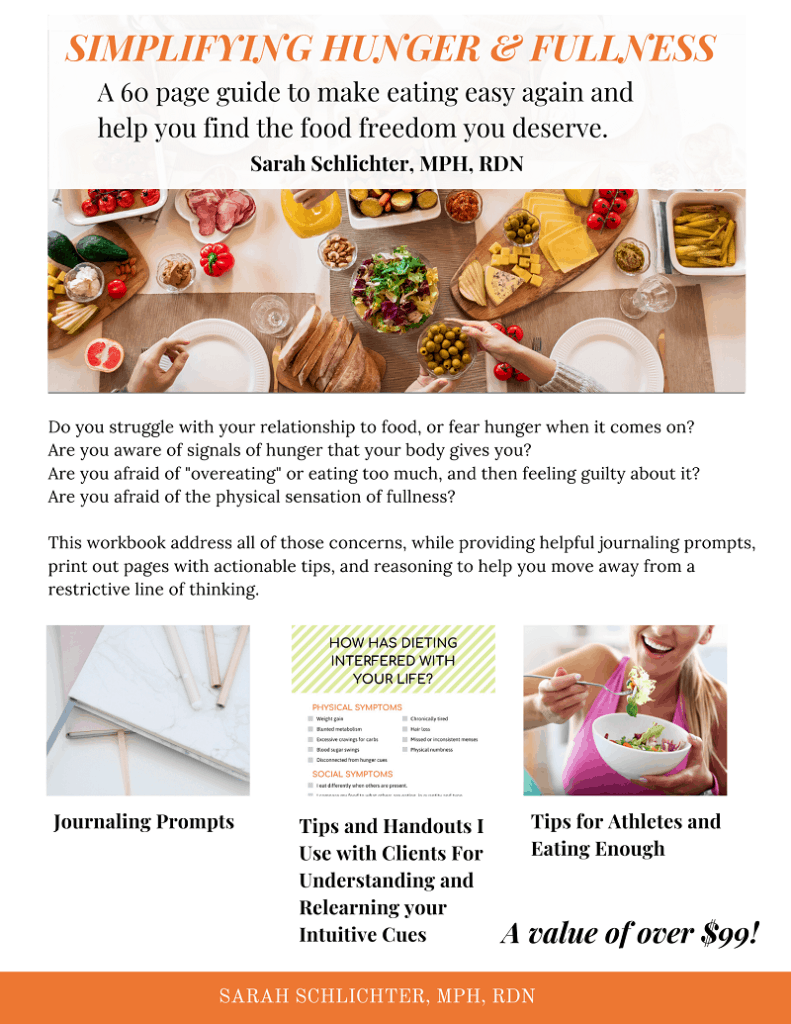
Review the Previous Intuitive Eating Principles:
- 7 Reasons Diets Don’t Work, According to Science
- Principle 1: How to Reject the Diet Mentality for Athletes
- Principle 2: How to Honor Your Hunger
- Principle 3: Making peace with food
- Principle 4: Challenge the Food Police
- Principle 5: Discover the Satisfaction Factor
Support Bucket List Tummy











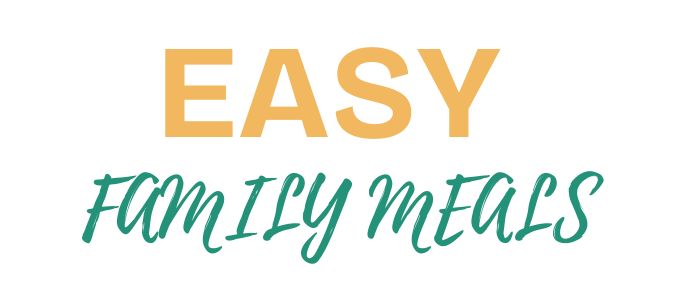
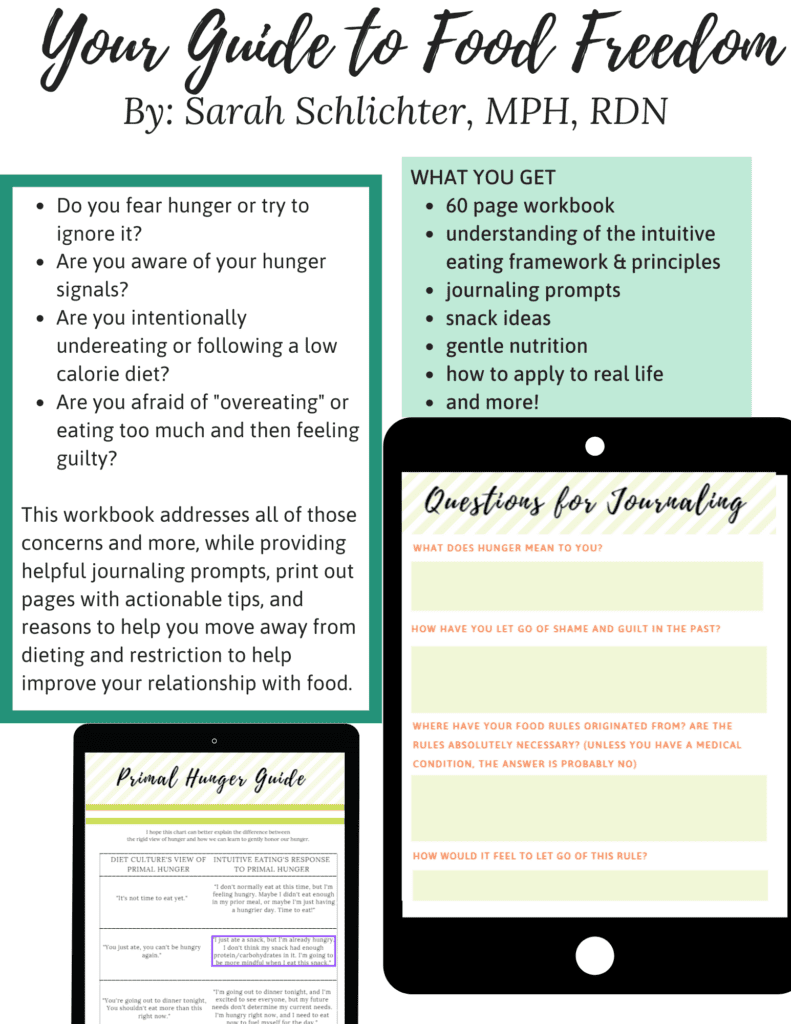
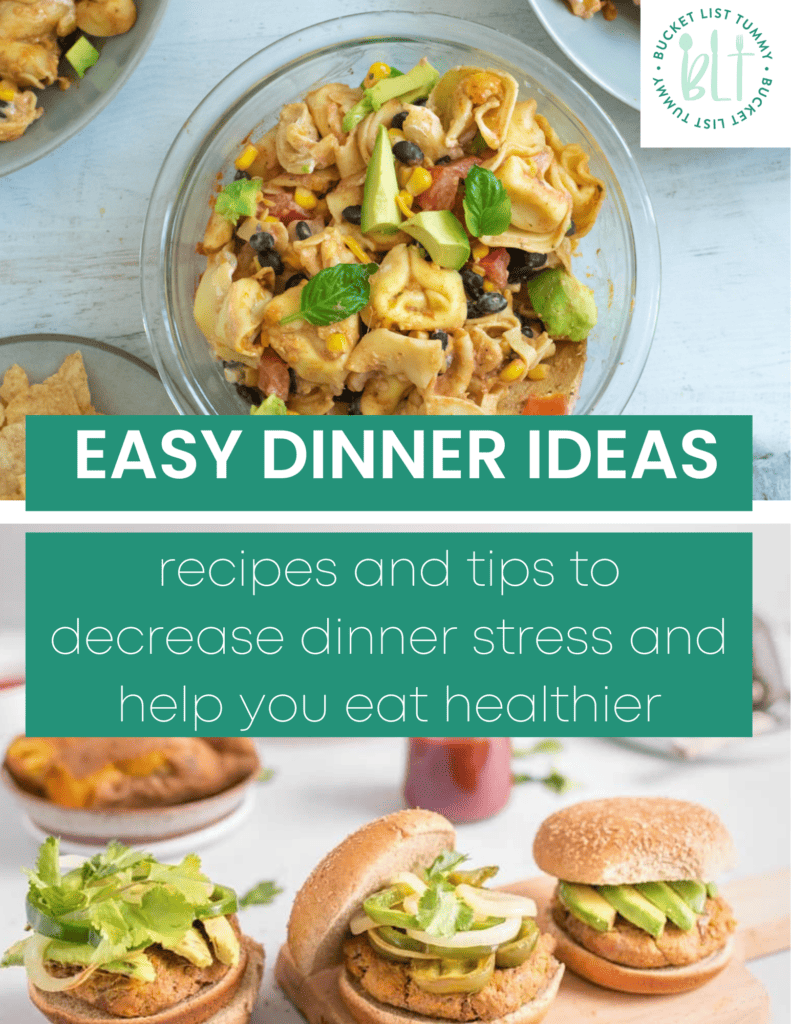



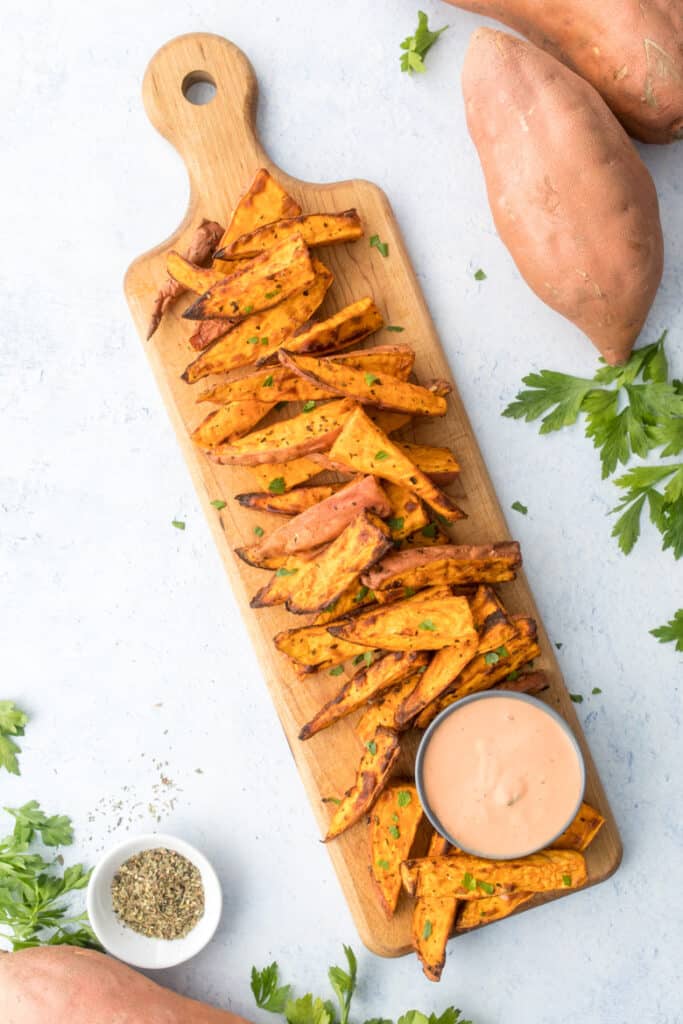

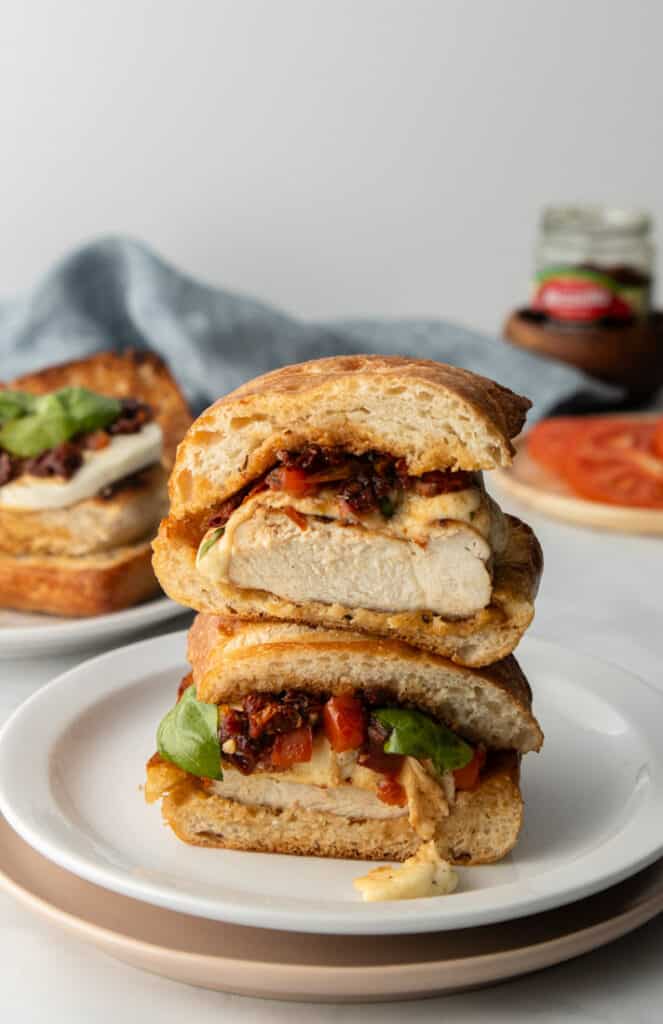



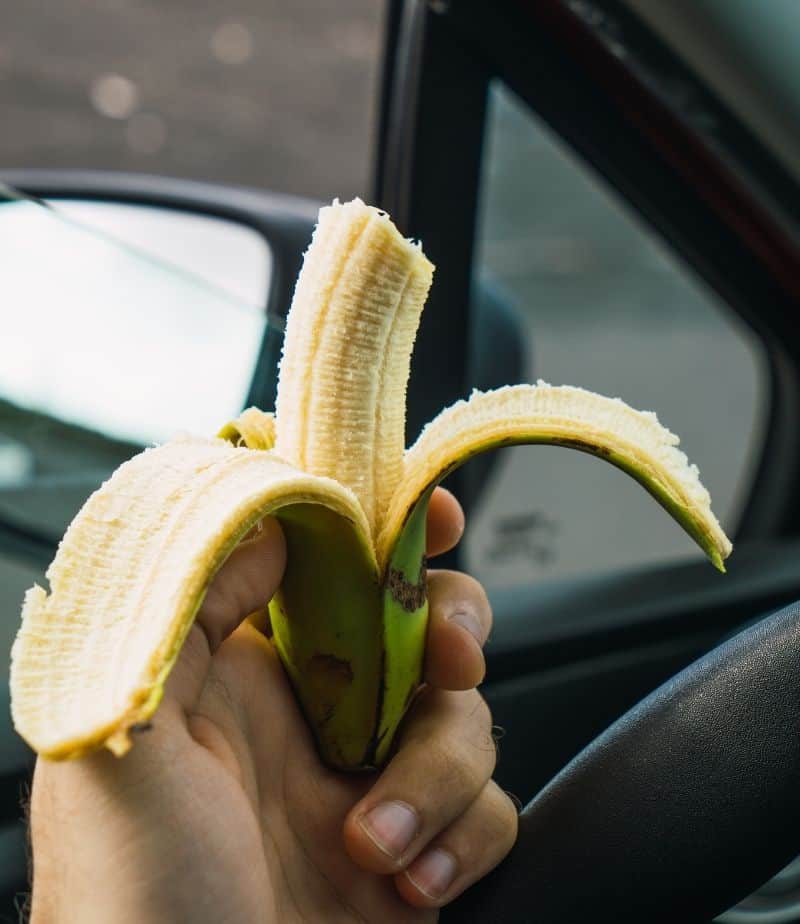


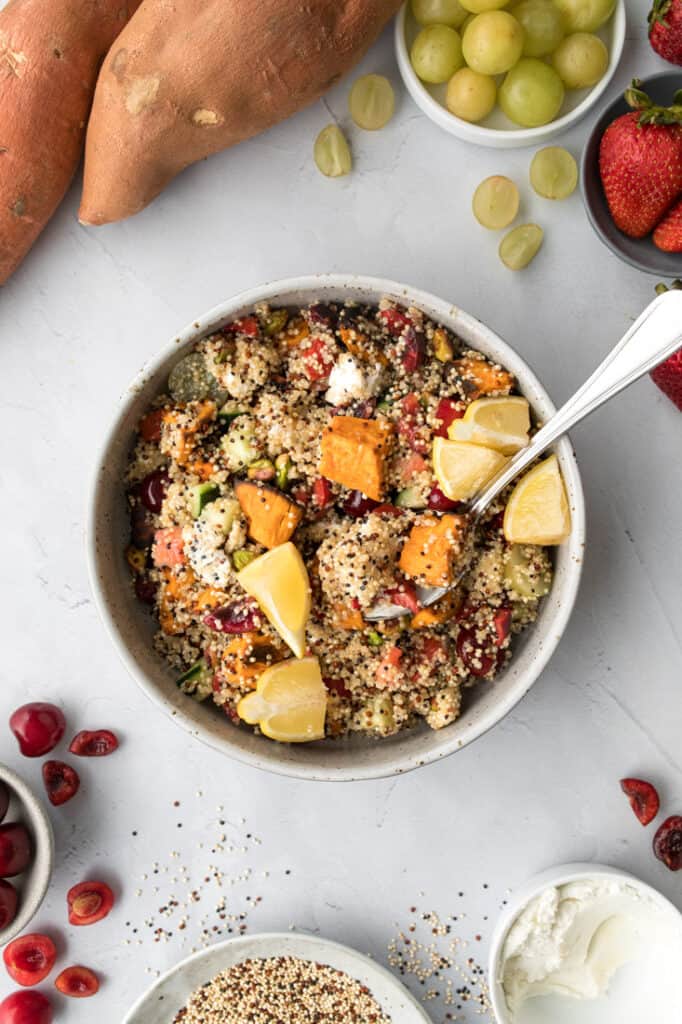

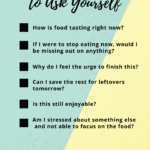
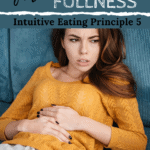
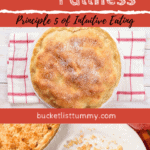
Like This Content?
Support Bucket List Tummy